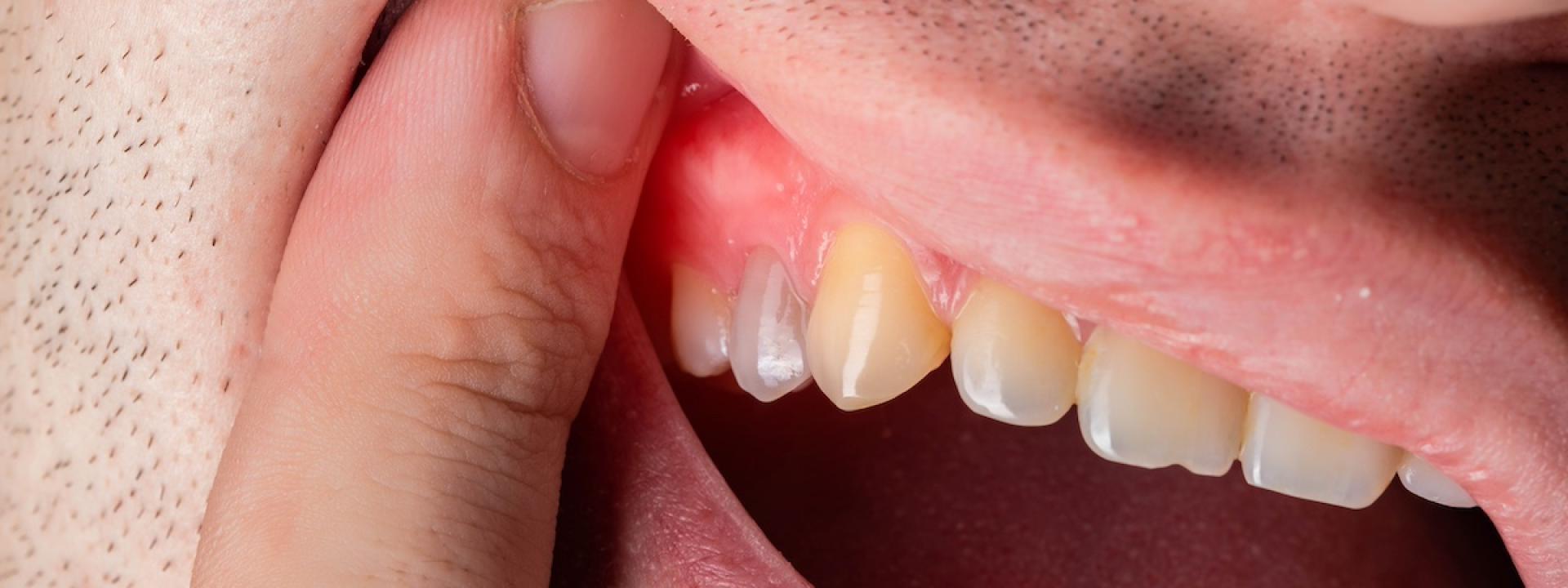While often overlooked, gum health is a crucial aspect of overall oral well-being, and any changes in their condition can be perplexing. One of the more puzzling occurrences is when the gums swell without pain. We see this issue frequently, and as dentists, we’re here to help you understand what could be causing it. Let’s explore the complex world of gum health, the potential causes behind painless gum swelling, and the essential steps to address, manage, and prevent this common problem.
Gum Anatomy
You need to understand your gums’ structure to determine why they might swell without pain or discomfort. Scientifically known as gingiva, your gums consist of several layers, each with a unique role and composition. These layers house a network of blood vessels and nerve endings, making them highly sensitive to changes and irritation.
The Role of Gums in Oral Health
Gums, often considered little more than the pink borders surrounding your teeth, play a pivotal role in maintaining oral health. They shield the underlying dental structures from the onslaught of harmful bacteria and irritants. Beyond this protective role, gums have a crucial anchoring function, ensuring that your teeth remain secure in your jawbone.
Common Causes of Swollen Gums
Gingivitis
Gingivitis is one of the most common culprits of painless gum swelling. This mild form of gum disease silently penetrates the gingival tissues and often leads to more severe problems. Remarkably, gingivitis can progress without causing pain, making it a stealthy cause of swollen gums that often goes unnoticed.
Medication Side Effects
Some medications list gum swelling as a side effect. Known as drug-induced gingival enlargement, this problem is associated with specific drug categories. The result can be painless yet concerning gum swelling.
Medications that can cause swollen, painless gums include:
- Antiseizure drugs
- Calcium channel blockers
- Immunosuppressants
Hormonal Changes
Hormonal fluctuations, particularly in women, can also lead to gum swelling. Pregnancy-related gingival swelling is a well-documented example where changes in hormone levels can increase blood flow to the gums and alter the body’s response to irritants.
Allergic Reactions
In some cases, gum swelling may be attributed to an allergic reaction. Toothpaste, mouthwash, or certain foods trigger this response in some people. Identifying the allergen responsible for the response is crucial in managing and resolving this type of gum swelling.
Medical Conditions and Swollen Gums
Periodontal Disease
Periodontal disease, which includes the more severe form known as periodontitis, can silently progress within the gums. This inflammatory condition affects the superficial gum tissues but goes much deeper, impacting your teeth’s support structures. While it sounds quite painful, many patients experience painless swelling in the initial stages of periodontal disease.
Systemic Illnesses
Systemic conditions like diabetes can significantly impact gum health. It can weaken the body’s ability to combat infection, potentially leading to gum problems that may not initially hurt.
The Link Between Hygiene and Gum Health

Establishing and maintaining an appropriate oral hygiene routine is vital to prevent and manage painless gum swelling. The primary culprit behind gum swelling is often an accumulation of plaque on teeth. Fortunately, taking good care of your teeth can prevent plaque from building up.
Gum-Friendly Oral Care Tips
Effective oral care begins with choosing the right tools and techniques. Use a soft-bristle toothbrush and employ gentle, circular motions when brushing. This ensures effective cleaning and minimizes the risk of gum irritation. Flossing is also instrumental in removing plaque and debris from between teeth and along the gums.
Regular dental check-ups are another important part of keeping your gums healthy. They allow for early detection and prevention of gum problems and provide a way to stay informed about best practices for maintaining or improving oral health.
When to Seek Professional Help
If you have swollen, pain-free gums, keep an eye on them. Regular monitoring provides valuable insights into the progression and nature of the swelling.
Red Flags for a Dental Visit
Certain signs and symptoms should immediately prompt you to seek professional dental care. These include persistent and unrelenting swelling, bleeding, pus discharge, or noticeable changes in the color of your gums. These symptoms may signify underlying dental issues that require prompt professional attention.
Diagnosis and Treatment
When you decide to consult a dentist regarding your painless gum swelling, you can anticipate a thorough examination. This examination will include a visual inspection of your gums, probing for potential periodontal pockets, and X-rays or other diagnostic tools to determine the extent and nature of the issue.
Treatment Options
Treatment varies depending on the underlying cause of gum swelling. Addressing the root cause of the swelling is the only way to truly eliminate it. Treating the underlying problem may involve improving oral hygiene, discontinuing medication, or managing systemic illnesses. Your dentist might recommend medications or dental procedures as part of your treatment plan.
Preventing Swollen Gums
Preventing gum swelling, whether accompanied by pain or not, begins with proactive gum health measures. One of the most important steps in avoiding swelling is establishing a daily oral care routine that encompasses brushing, flossing, and using an antiseptic mouthwash. A balanced diet, rich in essential vitamins and minerals, also contributes to gum health.
Lifestyle Adjustments
Certain lifestyle adjustments can go a long way in promoting gum health and preventing painless gum swelling. If you are a smoker, dropping the habit can significantly reduce the risk of gum problems. Stress management and regular exercise can also be beneficial, as they contribute to reduced inflammation and improved immune responses in the body.
Conclusion

Painless gum swelling may be confusing, but knowledge and awareness are your most potent allies in addressing and managing it. Understanding the potential causes and taking appropriate action is essential can help you overcome or prevent this common problem.
Remember, the absence of pain doesn’t mean you shouldn’t be concerned. Take care of your teeth and gums, and seek professional guidance when you have concerns. By doing so, you can address and manage painless gum swelling and ensure the continued health and comfort of your smile. Contact your dentist today if you are concerned about your oral health.

